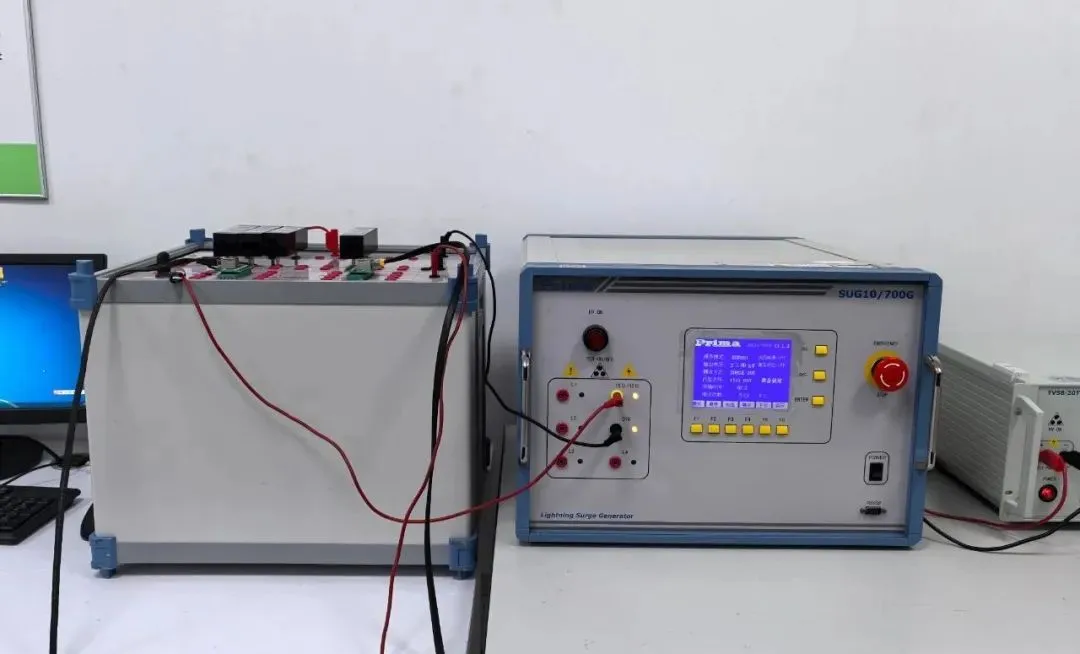
Temu Europe Station Requires CE and RoHS Compliance
As compliance regulations in the EU tighten, Temu is enhancing its qualification control measures. Following strict inspections against fake certifications, Temu has now implemented comprehensive control over CE and RoHS qualification requirements.
Key Updates:
Sellers of electronic and electrical products destined for Europe shoULd note that all products under directive requirements must provide CE-RoHS and CE-emc certifications. Sellers can check in the compliance center whether their products require uploading these qualifications.
Starting November 25, 2024 (based on the seller backend display time), non-compliant products will be delisted. Products with valid certifications should upload them promptly. Sellers without relevant qualifications must act immediately to avoid delisting and disruptions to Black Friday sales.
How to Fulfill Platform Qualification Requirements?
Sellers should first self-audit their product certifications, test reports, and product detail pages to ensure compliance with Temu’s qualification requirements. For products that require additional certifications, take the following actions:
1. Obtain certifications from manufacturers: Most cross-border product manufacturers have relevant certifications. Contact the manufacturer for the required documentation and upload it. Certifications must comply with Temu’s requirements; otherwise, uploads will fail (refer to Temu’s qualification guidelines).
2. Use certified testing agencies: If the manufacturer does not provide certifications, work with authorized testing agencies or platform-certified service providers to obtain the necessary documentation.
Controlled Qualifications:
- CE-EMC (CE-RED can replace CE-EMC)
- CE-RoHS
Controlled Product Types:
- All electronic products
Compliance Deadline:
- November 25, 2024: Non-compliant products will be delisted across all European sites if certifications are not uploaded by this date.
Important Notes:
- CE-rohs reports must include all SKU variants shown in product images. For example, if black and white SKU colors are listed, both colors must appear in the CE-ROHS Test report.
- RoHS involves chemical testing; all parts shown in SKU images must appear in the report sample photos. Different colors or components for SKUs require separate reports. A single report cannot be used for SKUs with varying colors or components.
- Qualification documentation must be a complete test report that includes testing for 10 substances, with all mandatory sections tested to meet regulatory requirements.
What is CE certification?
The CE mark is a safety certification symbol regarded as a “passport” for manufacturers to enter the European market. CE certification is mandatory within the EU and covers a broad range of products.
To freely circulate products in the EU market, cross-border sellers must affix the CE mark to demonstrate compliance with EU regulations. These regulations ensure high standards for safety, health, and environmental protection.
CE certification applies to EU member states and the European Economic Area, covering product categories such as electronics, machinery, wireless communications, toys, lighting, and home appliances.
CE Certification Requirements:
Products must comply with directives such as:
- Machinery Directive (MD)
- low voltage directive (LVD)
- Electromagnetic Compatibility Directive (EMC)
Compliance is demonstrated through standard testing.
What is ROHS certification?
RoHS (Restriction of Hazardous Substances) is an EU-mandated standard aimed at restricting hazardous substances in electronic and electrical equipment. It limits harmful substances like:
- Lead (Pb)
- Mercury (Hg)
- Cadmium (Cd)
- Hexavalent chromium (Cr6+)
- Polybrominated biphenyls (PBB)
- Polybrominated diphenyl ethers (PBDE)
- Phthalates (DBP, BBP, DIBP, DEHP)
RoHS certification confirms that a product contains no harmful substances or that their levels are below permissible thresholds.
rohs testing Scope:
RoHS covers "electrical and electronic equipment" (EEE), defined as devices dependent on electrical current or electromagnetic fields for operation. This includes:
1. Large household appliances
2. Small household appliances
3. IT and telecom equipment
4. Consumer devices
5. Lighting equipment
6. Electrical tools
7. Toys, leisure, and sports equipment
8. Medical devices
9. Monitoring instruments, including industrial devices
10. Automatic dispensers
11. Other EEE not classified above
RoHS certification relies on chemical analysis of the aforementioned substances. If test results comply with RoHS standards, the testing agency issues a conformity certificate.
How to Apply for Certifications?
Steps for CE Certification:
1. Identify a qualified third-party laboratory: Choose a lab with appropriate certifications and capabilities.
2. Submit a RoHS test application form with product details (name, model, manufacturer).
3. Send samples to the lab: The lab will test the samples and issue a test report within a week.
Recent Updates:
Temu now requires every model, material, and color of a product to undergo individual testing for approval. Certification consolidation across different models, series, or colors is no longer accepted.
Each product variant must be tested separately to ensure compliance with platform standards. This includes products with minor variations such as color or appearance differences.
As Temu’s compliance requirements grow stricter, sellers must ensure their products meet all qualifications. Sellers of electronic and electrical products should act quickly to maintain compliance and avoid disruption.
For assistance, China JJR Laboratory provides CPC, FDA, CE, and other testing certifications. Contact us for support!
Email:hello@jjrlab.com
Write your message here and send it to us
 What is the EN 61326-2-3 Standard?
What is the EN 61326-2-3 Standard?
 Why Do Smart Sockets Need IEC 60884 Certification?
Why Do Smart Sockets Need IEC 60884 Certification?
 Why Retest the Device if the 5G Module Already Has
Why Retest the Device if the 5G Module Already Has
 Overview of IEC 62087 Test Standard
Overview of IEC 62087 Test Standard
 CISPR 25 Test Standard Compliance Guide
CISPR 25 Test Standard Compliance Guide
 IEC/UL/CSA 62368-1 Electrical Distance Testing
IEC/UL/CSA 62368-1 Electrical Distance Testing
 Canada Wireless Device IC Certification RSS-210 Te
Canada Wireless Device IC Certification RSS-210 Te
 FCC Part 15.231 for Wireless Remote Controls and S
FCC Part 15.231 for Wireless Remote Controls and S
Leave us a message
24-hour online customer service at any time to respond, so that you worry!




